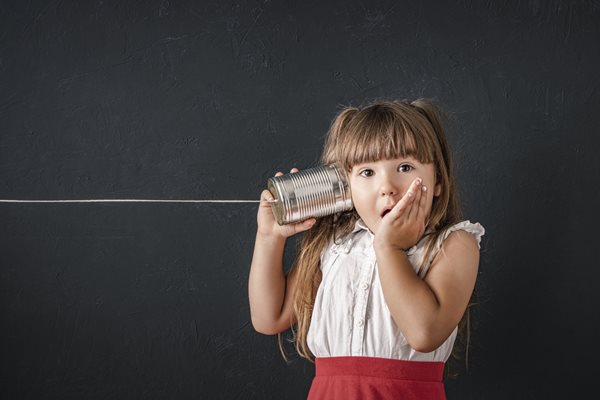
Kids are both curious and natural storytellers. As children become more social and settle into social hierarchies, it's very natural for them to start to share news about classmates or peers. But as they develop, how can parents, teachers, and caregivers help the young people in their lives know the difference between sharing something interesting and important or sharing something that might be false or hurtful?
In Judaism, there's a tenet called lashon hara ("evil tongue" in Hebrew) that focuses on what not to do when it comes to speaking about others, especially those in our community. Many Jewish teachings emphasize avoiding negative speech about others. Lashon hara is said to harm three people at the same time: the one who says it, the one who hears it, and the one who’s being talked about. The opposite of lashon hara is lashon hatov, or good speech.
Follow along for more activities, book lists, discussion points and videos for talking to your kids about gossip.
Read
Recommended for ages 4 to 5
Beatrice and Abel are the finest of friends -- until a misunderstanding gets in the way. How will they reconcile in time for a fresh start in the new year? Every young child (and many grownups!) will relate to this dilemma.
Recommended for ages 6 to 7
Lilly loves her purse -- but when she disrupts class with it, her teacher has to take it away for a while. Lilly doesn't react so well... and soon she's going to have to learn how to say two of the most important words: "I'm sorry."
Recommended for ages 5 to 7
Gossip causes harm ― and sometimes we have to learn that lesson the hard way. This famous story from the Baal Shem Tov, retold by Madonna and illustrated by Loren Long, is a reminder of the power of words.
Recommended for ages 7 to 8
This classic tale from medieval Spain has a classic message: The best antidote to meanness is kindness.
Recommended for ages 5 to 8
Yankel loves to spread the rumors he hears when he’s in his father’s store in the shtetl. But he doesn’t realize how harmful this can be, so the rabbi decides to teach him an important lesson.
Discuss
One of the most powerful ways to help children, of any age, get over gossiping, is by asking the very simple question: "Why are you telling me this?" This direct query helps kick off a discussion about the purpose of gossip.
Ask your child how they would feel if someone said the same thing about them. Read one of the stories above to dig deeper into what happens when gossip is shared.
Sometimes, there are situations where it will be important for a child to repeat something that may seem negative: if cheating, bullying, or other scary situations are involved, it's important for kids to be able to speak to a trusted adult who can address those issues directly. In adulthood, the idea around lashon hara is that adults communicate directly with each other.
Here are some other easy, quick, and simple talking points to help have a family or classroom discussion about lashon hara:
- When we speak badly about someone else, it damages the speaker, the listener, and the one who is spoken about. That’s at least three people getting hurt just by a few words.
- Once words are spoken, we can’t take them back. Imagine trying to put toothpaste back into the tube. It's impossible, right? That's the same thing with gossip - once it's out, it's out.
- In the traditional Yom Kippur liturgy we ask forgiveness, not just for the negative things we may have said about others, but even for the negative words we’ve spoken and thoughts we’ve had about ourselves! Be kind to yourself, and be kind and thoughtful of others.
- Based on those ideas above, the teaching and learning can emphasize how we can speak kindly, how adults can model that behavior, and how we can react when we are the ones who hear the negative talk.
More
What is Lashon Hara? via My Jewish Learning
Teaching Kids About Gossip via kveller.com
A Torah Haiku via Union For Reform Judaism
September 10, 2021